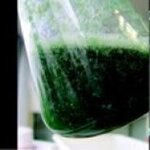
Blasting biofuels for significantly contributing to greenhouse gas emissions is sooooo 2006, according to a new Michigan State University analysis. Much like the environmental hype in the 1990s about how much better we would be with ethanol, the scorn heaped on biofuels has been exaggerated as well, calling into question the benefits of making fuel from plant material.
The scorn comes from assumptions that may not be correct, write Bruce Dale, Distinguished Professor of chemical engineering and materials science, and co-authors in Environmental Science&Technology.
"Greenhouse gas…
